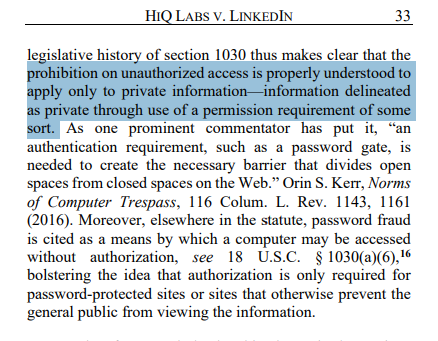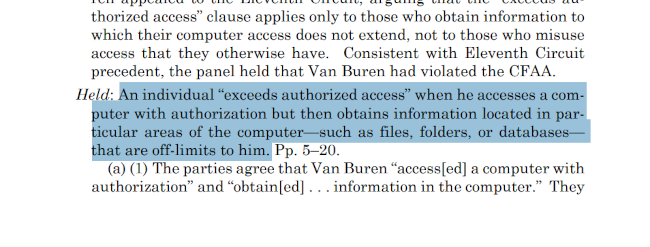The Legality of Accessing Public LinkedIn Profiles: An Overview
The practice of accessing and utilizing publicly available data from platforms like LinkedIn often raises questions regarding its legal standing. This article examines key legal arguments and precedents relevant to this discussion.
The Significance of Public Data in Court Rulings
A notable case in this area is hiQ Labs v. LinkedIn Corp. The Ninth Circuit Court of Appeals addressed the Computer Fraud and Abuse Act (CFAA) in relation to publicly available data. The court's ruling distinguished between accessing public and private data, suggesting that the CFAA, primarily an anti-hacking statute, may not prohibit the scraping of information that is publicly accessible on the internet. The court reasoned that when users designate their profiles as public, that information is openly available for observation.

- • Clearly establishes that the CFAA only applies to private information requiring permission to access
- • Explicitly states that authorization is not required for information viewable by the general public
Understanding Public Access
Understanding Public Profiles
When individuals set their LinkedIn profiles to "public," they are choosing to make their professional information accessible to anyone on the internet. Accessing such information is akin to reading a publicly available newspaper or website, as it does not involve bypassing security measures or accessing private, password-protected areas.
The CFAA and Publicly Accessible Information
The Computer Fraud and Abuse Act (CFAA) was primarily enacted to address unauthorized access to computer systems – essentially, to combat hacking. Multiple judicial interpretations have indicated that the CFAA is an "anti-intrusion" statute rather than a broad "misappropriation" statute. Therefore, accessing information that is publicly visible and requires no special authorization may not fall under the prohibitions of the CFAA.
Legal Concepts & Protections
Transformative Use and Data Analysis
A legal concept that can be relevant is "transformative use." This refers to taking existing information and creating something new from it, such as by analyzing changes over time to derive insights not explicitly stated on the original platform. Courts have, in various contexts, considered transformative uses of information as potentially creating new value, which can be a factor in legal analyses. For instance, noting a change in a public job title over time and inferring career progression is an analytical step beyond simple data replication.
First Amendment Considerations
The First Amendment of the U.S. Constitution protects the freedom to gather and disseminate information. Restrictions on accessing publicly available information can raise First Amendment concerns. The observation and reporting of facts that are already in the public domain can be viewed as activities that fall under these protections.
Copyright and Factual Data
A fundamental principle of intellectual property law is that facts themselves are not copyrightable. While the specific written expression of facts (e.g., a detailed profile summary) might have copyright protection, the underlying factual data (e.g., a job title, company name, dates of employment) generally does not. Changes to such factual data on a public profile are not typically subject to copyright claims.
Key Legal Precedents & Interpretations
The Supreme Court's 2021 decision in Van Buren v. United States provided further clarification on the CFAA, particularly concerning what constitutes "exceeding authorized access." The Court adopted a narrower interpretation, suggesting that if a person has authorization to access certain information on a computer system, merely misusing that information for an improper purpose might not violate the CFAA, as long as they did not access information they were not authorized to access at all. This ruling has implications for how the CFAA is applied to data that is publicly accessible without requiring specific authorization credentials.

- • The CFAA only applies when someone accesses areas that are "off-limits" to them
- • By implication, accessing information that is NOT off-limits (i.e., public LinkedIn profiles) does not violate the CFAA
- • The ruling comes directly from the Supreme Court, giving it maximum legal authority
Broader Context & Conclusion
Economic and Societal Considerations
Courts sometimes consider the broader economic and social implications of data aggregation and analysis services. Arguments can be made that such services can contribute to market efficiency, facilitate professional networking, or aid in recruitment and business development by making public information more discoverable or usable. These factors can be part of the broader legal and public interest landscape.
Conclusion
The legal landscape concerning the access and use of publicly available data, including from LinkedIn profiles, is shaped by various court decisions and legal principles. Key considerations include the public nature of the data, the application of statutes like the CFAA, First Amendment rights, copyright law, and the concept of transformative use. While legal interpretations can evolve, current precedents suggest that accessing information that users have voluntarily made public does not, in itself, constitute a breach of laws like the CFAA.
References
Van Buren v. United States Supreme Court ruling
Official source: https://www.law.cornell.edu/supremecourt/text/19-783
hiQ Labs v. LinkedIn Ninth Circuit ruling
Official source: https://cdn.ca9.uscourts.gov/datastore/opinions/2022/04/18/17-16783.pdf
Computer Fraud and Abuse Act (CFAA)
Official source: https://www.law.cornell.edu/uscode/text/18/1030
Electronic Frontier Foundation's analysis of hiQ v. LinkedIn
Source: https://www.eff.org/deeplinks/2022/04/victory-ninth-circuit-rules-cfaa-does-not-criminalize-accessing-public-information
This article provides general information based on current legal discussions and court decisions. It should not be construed as legal advice for any specific situation. Individuals and businesses should consult with legal counsel for advice tailored to their particular circumstances.